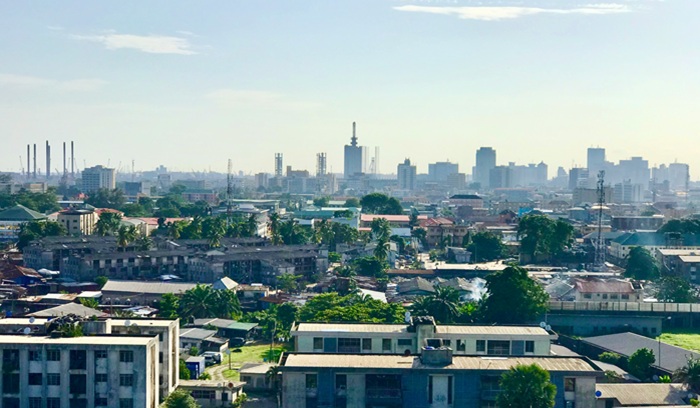Lagos, one of the world’s most plastic-polluted cities, has enacted a ban on single-use plastics effective July 1, 2025. The legislation prohibits common disposable items such as styrofoam containers, cutlery, plates, and straws, with violators facing possible business closure. The move comes as the city grapples with generating 870,000 tons of plastic waste in 2024—one of the highest contributions globally by a single city (AP News; Reuters).
Urgency Rooted in Waste and Flooding
Lagos produces at least 13,000 tons of waste daily, nearly one-fifth of which is plastic. Poor waste management has allowed plastics to flood into waterways, clog canals, and pollute beaches—exacerbating the city’s recurring flooding issues (AP News; Wikipedia: Lagos). The initiative is part of a broader national effort to curb plastic pollution, following a 2024 federal policy aimed at reducing certain plastics by 2025, including straws, plastic bags, and bottles.
Enforcement Gaps and Public Hesitancy
Despite the official ban, enforcement remains weak. Informal sellers and vendors continue to use banned items due to lack of affordable alternatives and minimal monitoring. A shop operator admitted using styrofoam-packaged food daily, especially since cheaper, convenience-driven options remain dominant (AP News). Local environmental activist Olumide Idowu warned that without strong enforcement and accessible alternatives, the ban’s effectiveness will be limited (AP News).
Grassroots Recycling Efforts and Innovation
In the Obalende neighborhood, informal waste sorters work with razor blades to strip labels from soft drink bottles, preparing them for recycling. These individuals earn roughly 5,000 naira (around USD 3.26) daily—an indication of innovative, low-income recycling solutions. Firms like Wecyclers are partnering with Lagos State to incentivize recycling by compensating low-income households for recyclable waste, helping build a circular economy (AP News; Wikipedia: Wecyclers).
Civil Society Urges Manufacturer Accountability
Environmental advocates argue the ban alone is insufficient. They call on manufacturers to design products for recycling and to establish take-back systems. Without industry cooperation and a shift toward truly circular production models, single-use plastics will continue to overwhelm urban environments. Greenpeace Africa emphasized that this is a call for sustainable innovation, not punitive regulation (Greenpeace Africa).
Global and Local Policy Context
Lagos’s move coincides with ongoing negotiations in Geneva for a binding global plastics treaty—a process hindered by resistance from oil-exporting countries reluctant to regulate plastic production. Experts emphasize that reducing plastic pollution requires coordinated local action, international policy alignment, and industry engagement (AP News).
Looking Ahead
The single-use plastics ban in Lagos is a bold and necessary initiative, but its impact hinges on systemic support. Effective enforcement, affordable and sustainable alternatives, robust waste management infrastructure, and behavioral change are essential to make it meaningful. For now, the ban serves as a catalyst for innovation and civic mobilization—a step toward reshaping the city’s relationship with plastics.
More Good News
-

Ghana repeals legislation that opened forest reserves to mining
In a historic win for conservation, the Parliament of Ghana has repealed L.I. 2462, effectively banning mining activities in the country’s protected forest reserves. This decision follows months of intense advocacy from a coalition of labor unions, religious groups, and environmental organizations. The repeal safeguards critical watersheds that provide drinking water to millions and protects vital habitats for endangered species. This legislative reversal marks a decisive shift toward sustainable development and restores the legal sanctity of Ghana’s natural heritage.
-

Fentanyl overdose deaths in the U.S. are now falling sharply
The United States is seeing a dramatic decline in fentanyl overdose deaths, with new data showing a drop of approximately 33% in 2024 after the crisis peaked at 76,000 deaths in 2023. Preliminary findings suggest continued double-digit reductions in 2025. This positive trend is driven by successful diplomatic efforts to cut off precursor chemicals from China, disrupting the supply chain. Simultaneously, the widespread availability of naloxone and expanded access to addiction treatment are saving lives domestically.
-

Major rewilding effort removes 100 miles of fencing across the Great Plains of Montana
Led by the American Prairie Reserve, this initiative relies on volunteers to clear abandoned barbed wire that endangers wildlife and fragments habitat. The removal reopens ancient migration corridors for species like pronghorn antelope and elk, allowing them to move freely across the landscape. This project restores the natural beauty of the prairie and serves as a powerful model for reconnecting fragmented ecosystems nationwide.
-

China achieves breakthrough in fusion reactor plasma density
China has achieved a major breakthrough in the quest for viable fusion power with its experimental EAST reactor in Hefei, Anhui Province. The device shattered a world record by sustaining plasma at 158 million degrees Fahrenheit for over 17 minutes. This engineering feat proves that the extreme conditions needed for fusion can be stabilized for long durations. The breakthrough is a critical step in the global effort to develop abundant, safe, carbon-free energy supplies and combat climate change.
-

The Faroe Islands legalizes abortion
In a landmark victory for reproductive freedom, the Faroe Islands parliament has voted to legalize abortion, ending one of Europe’s most restrictive bans. The new law allows for abortion on demand up to the 12th week of pregnancy, aligning the archipelago with its Nordic neighbors. This historic change removes the need for women to travel to Denmark for care, ensuring access to essential medical services at home. The decision is a triumph for grassroots activists who campaigned for years to modernize the nation’s healthcare laws.
